Info
Subfamily: Chloridoideae
Genus etymology: Disakisperma = "twice pointed seed" [Greek] refering to the two lobed apex of the grains
Species etymology: dubium = "doubtful" [Latin] refering to ease of confusion with other species
Photosynthetic type: C4 (warm season)
Nativity: naturalized - accidental
First recorded in Hawaiʻi: 1950
Map
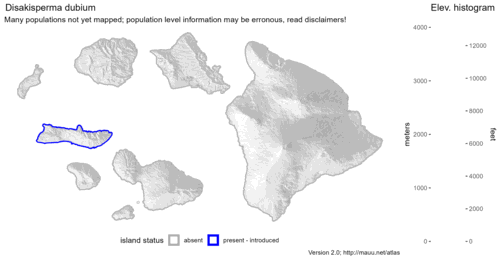
Inflorescence
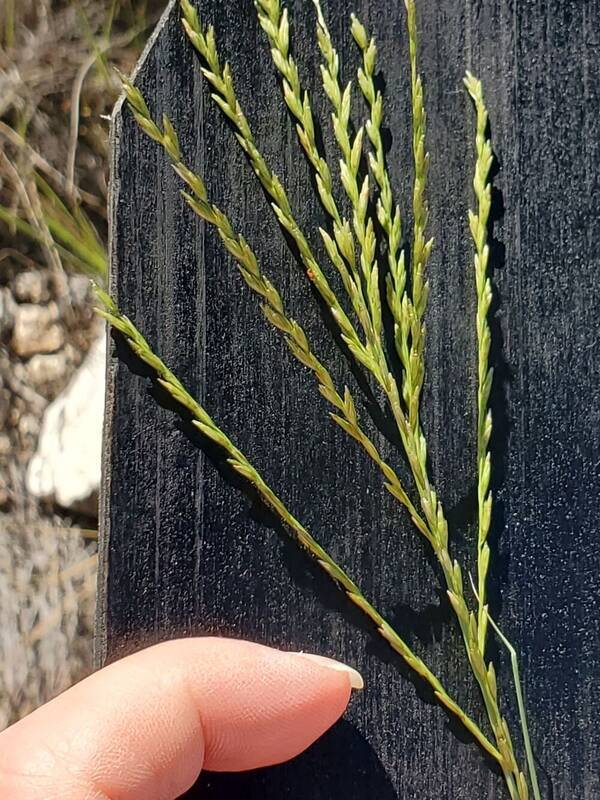 image credit: Jo_Roberts
image credit: Jo_Roberts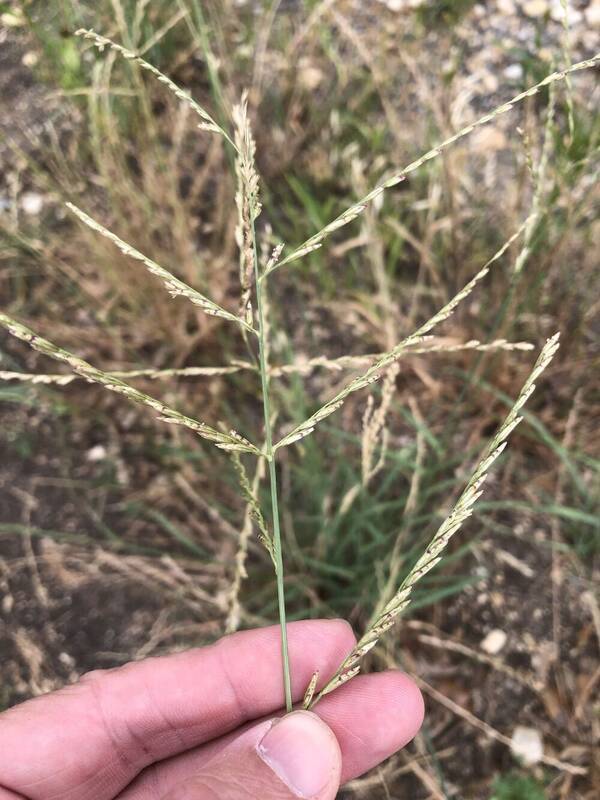 image credit: Sam_Kieschnick
image credit: Sam_KieschnickPlant
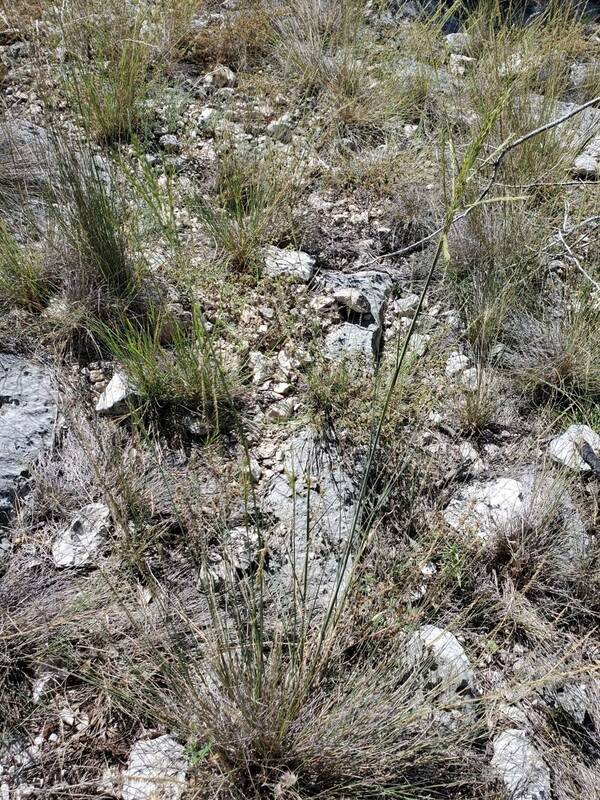 image credit: Jo_Roberts
image credit: Jo_RobertsSpikelets
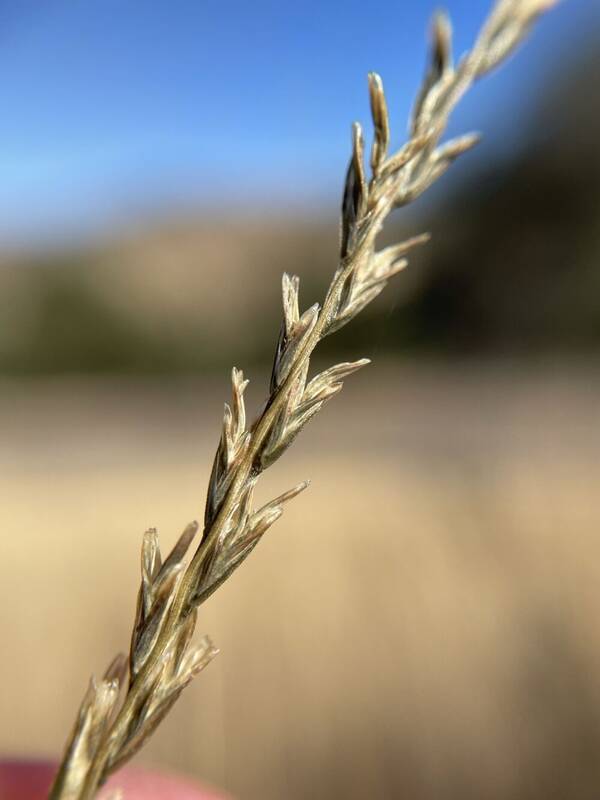
Description
Plants perennial. Culms (10) 30-110 cm, round or basally compressed, tillering from the basal nodes, not branching from the aerial nodes, mostly glabrous, sometimes pilose basally; internodes solid. Sheaths sometimes with a pilose collar; ligules 1-2 mm, truncate, erose; blades (2)8-35 cm long, 2-8 mm wide, glabrous, strigose, or pilose. Panicles 8-20 cm, with 2-15 subdigitate or racemose branches; secondary panicles often hidden in the lowest leaf sheaths; branches 2-19 cm, ascending to spreading at maturity. Spikelets 4-12 mm, light brown to dark olive green, with 4-13 florets, often widely diverging at anthesis. Glumes narrowly triangular to ovate, acute; lower glumes 2.3-4.8 mm; upper glumes 3.3-6 mm; lemmas 3.5-5 mm, membranous, ovate to obovate, lateral veins glabrous or sericeous, hairs often restricted to the basal portion, sometimes also sericeous on the midvein and between the veins, apices obtuse to truncate, usually emarginate, unawned, sometimes mucronate; paleas ciliate on the margins; anthers 3, 0.3-1.6 mm. Caryopses 1.5-2.3 mm long, 0.9-1 mm wide, strongly dorsally compressed. 2n = 40, 60, 80.
(Description source: Barkworth, M.E., Capels, K.M., Long, S. & Piep, M.B. (eds.) 2003. Flora of North America, north of Mexico. Volume 25. Magnoliophyta: Commelinidae (in part): Poaceae, Part 2. Oxford University Press, New York. 783 pp. http://floranorthamerica.org/Disakisperma_dubia )